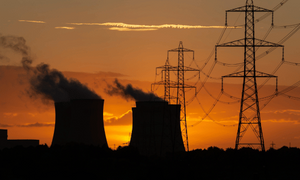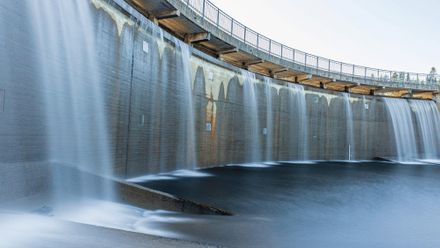Bracing for impact

A vision for Britain’s energy future
Britain’s energy future needs a secure and reliable system that’s diverse and flexible, and gives consumers the affordable heat, light and power when and where they need it – whether or not the wind blows or the sun shines.
And that’s a future system with pipes and wires delivering electrons and molecules that are getting increasingly cleaner, with the gas system pulling its weight with the contribution from hydrogen and biomethane.
Baseline action for Britain to reach net zero
We need to think, plan and design creatively, honestly and strategically across the whole energy system, and identify any shortcuts where we can, that helps to deliver decarbonisation quickly for impending carbon budgets and at the least possible cost.
This needs an awful lot to happen simultaneously, accepting there needs to be some room for regrets along the way, otherwise we’ll not get the large scale of transformation we need in the small window of opportunity we have. Perfection shouldn’t be allowed to delay progress.
The job ahead for NESO
System operation and planning needs to have a holistic view across energy, with its head above all interests, and to pull thinking up out of traditional silos and up into the big, complex system.
The ESO has had the view across electricity, and now with this change to NESO, it needs to ramp up its capabilities with the efficient integration of natural gas, hydrogen, biomethane, and anything else that comes along – with all these components participating on a level playing field. It’s been encouraging to see these capabilities and resources being built over the last year.
The importance of energy resilience
Energy resilience refers to the ability of the energy system to withstand a variety of different issues.
Having flexibility and diversity in the energy mix reduces dependency on any single energy source and enhances the system's ability to cope with fluctuations in supply and demand.
The gas system today is the unsung hero of energy system resilience – providing the backstop to meet electricity generation demand from a large capacity of flexible sources, and to meet our peak energy needs in winter.
This same level of resilience is needed in a net zero energy system, and the flexibility and storage of the gas system we enjoy today can continue to play a key role going forward.
Affordable energy for all
Integrated energy planning, investment and system operation needs to be optimised from the tip of an offshore wind turbine to the heating technologies and insulation in our homes – and everything like gas and electricity networks in between – to ensure assets are well-utilised, which translates to lower bills for British homes and businesses.
Over-investing in under-utilised assets will result waste and inefficiencies, and therefore higher bills – so getting the balance of assets and diversity in the energy mix is really important.
As with most things, once the production and deployment of sustainable gases scales up, costs will naturally come down with economies of scale and technological innovation.
Homegrown energy
Energy market instability in recent years has highlighted the fact that being self-sufficient is more important than ever.
Homegrown energy is crucial for ensuring energy sovereignty and security. By investing in our own renewable electricity generation and domestic production of sustainable gases like hydrogen and biomethane, Britain can reduce its reliance on imported fuels, which are subject to geopolitical risks, international competition for supplies, and associated price volatility.
This can’t ignore the fact, however, that our own gas sources, interconnection and supplies from LNG are going to be a very important part of our energy mix for decades. Not only are our three LNG terminals of paramount importance for our own energy needs, they’ve also been a lifeline for mainland Europe in supplying for their gas demand via our gas transmission system, and for filling up their storage in readiness for winter periods.
But in producing our own homegrown energy locally, it supports economic growth by creating jobs, stimulating innovation and ultimately offering us competitive advantage from being an early winner – with avenues to export our technology and services around the world.




